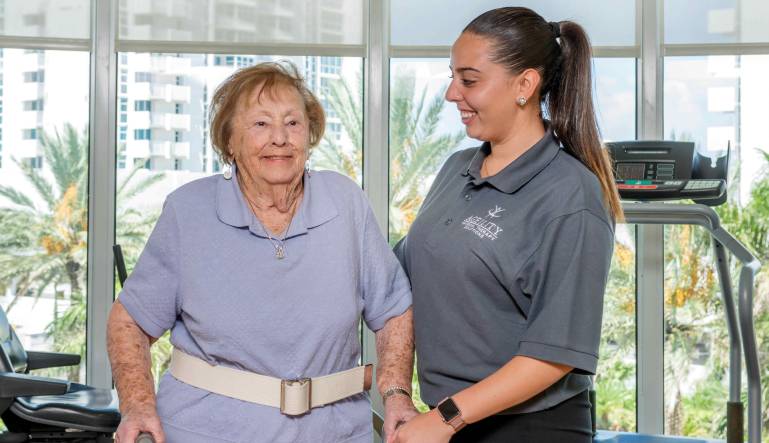Did you know that once you reach the age of 65 you have a one in four chance of falling? And that falls are the number one cause of injuries for older Americans each year?
With statistics like these, it’s easy to see why falling is a major concern for seniors. And just as worrisome for their adult children and other loved ones.
Fear of falling represents only one side of the coin, however. After a fall, those fears are compounded because they’ve been confirmed. The result can often be a total lack of confidence about walking and getting around.
Here’s what you can do to help a senior loved one regain his or her confidence if they’ve had a fall.
Steps to Take for Restoring Confidence After a Fall
Falling sends a lot of older Americans to the hospital each year. But falls are not an inevitable product of the aging process. And, just because your senior loved one has fallen one time, it doesn’t mean it has to happen again.
Following these steps may help your senior loved one build back their confidence.
Step One: Acknowledge the Fear
First, it’s important to acknowledge the validity of your senior loved one’s fears about falling. These fears are not unfounded: they’re real.
What’s lurking behind the fear of falling is an entire series of unwanted events: an extended stay in the hospital, more time spent in rehabilitation, possible decreased mobility, and the possible loss of independence.
Step Two: Start Slowly and Keep Calm
Your senior loved one can start with some strength exercises. Balance programs are helpful, and strength training can help to prevent falls, too.
Talk with their primary care physician for recommendations and possibly even a referral to a physical therapist.
Step Three: Physical Inactivity is Dangerous
There’s a vicious cycle that can start with your senior loved one if they let fear of falling take over. Their fear keeps them from moving about. Then they become inactive which can lead to an entirely new phase of physical and mental decline.
As we all know, staying active is a key factor in determining how you well you age. There’s a mountain of research standing behind that sentiment, showing that physical activity helps not only the aging body, but the mind as well.
Step Four: Take Steps to Prevent Future Falls
If the home environment is safe and it’s easier for your senior loved one to make his or her way around, their confidence will likely improve. Take practical steps like the following to prevent future falls.
Ways you can make a senior’s home safer might include:
- Remove items they might trip over, especially on or near stairs
- Use bath mats in the shower
- Keep the home well-lit inside and out
- Install grab bars in the bathroom and at the bedside
- Make sure banisters and stair treads are in good repair
- Get rid of throw rugs and extension cords that may present a fall risk
Five Star Senior Living is Safe Living
Here at Five Star Senior Living, we know it’s not just important for seniors to feel safe in their homes. They must actually be safe, which is why our senior living communities make safety a priority for our residents.

